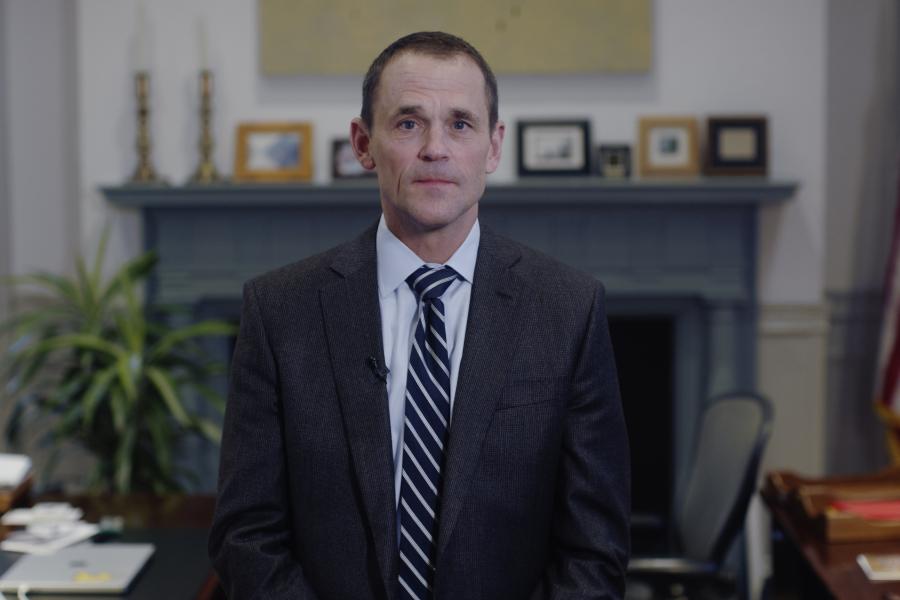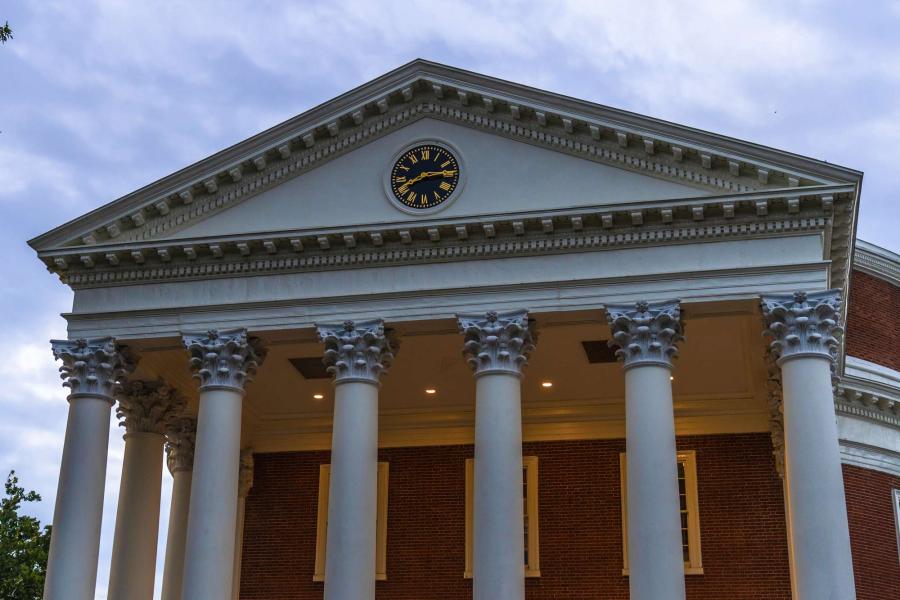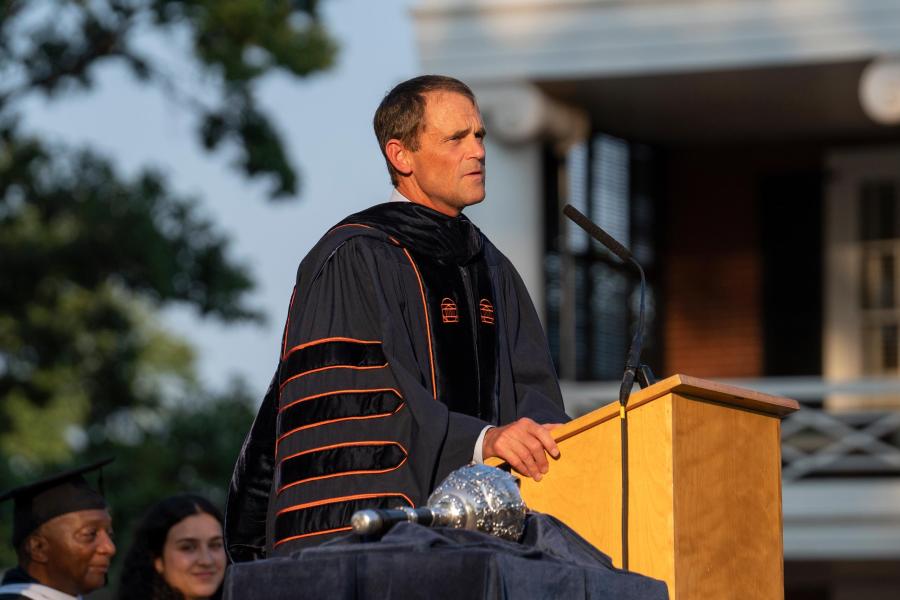Editor’s note: On Friday afternoon, University of Virginia President Jim Ryan, in a statement to the Board of Visitors, addressed concerns over a non-binding student referendum that encouraged the University’s investment arm to divest itself from companies doing business with Israel. Here is the text of the president’s remarks:
Text of UVA President Jim Ryan’s Statement to the Board of Visitors
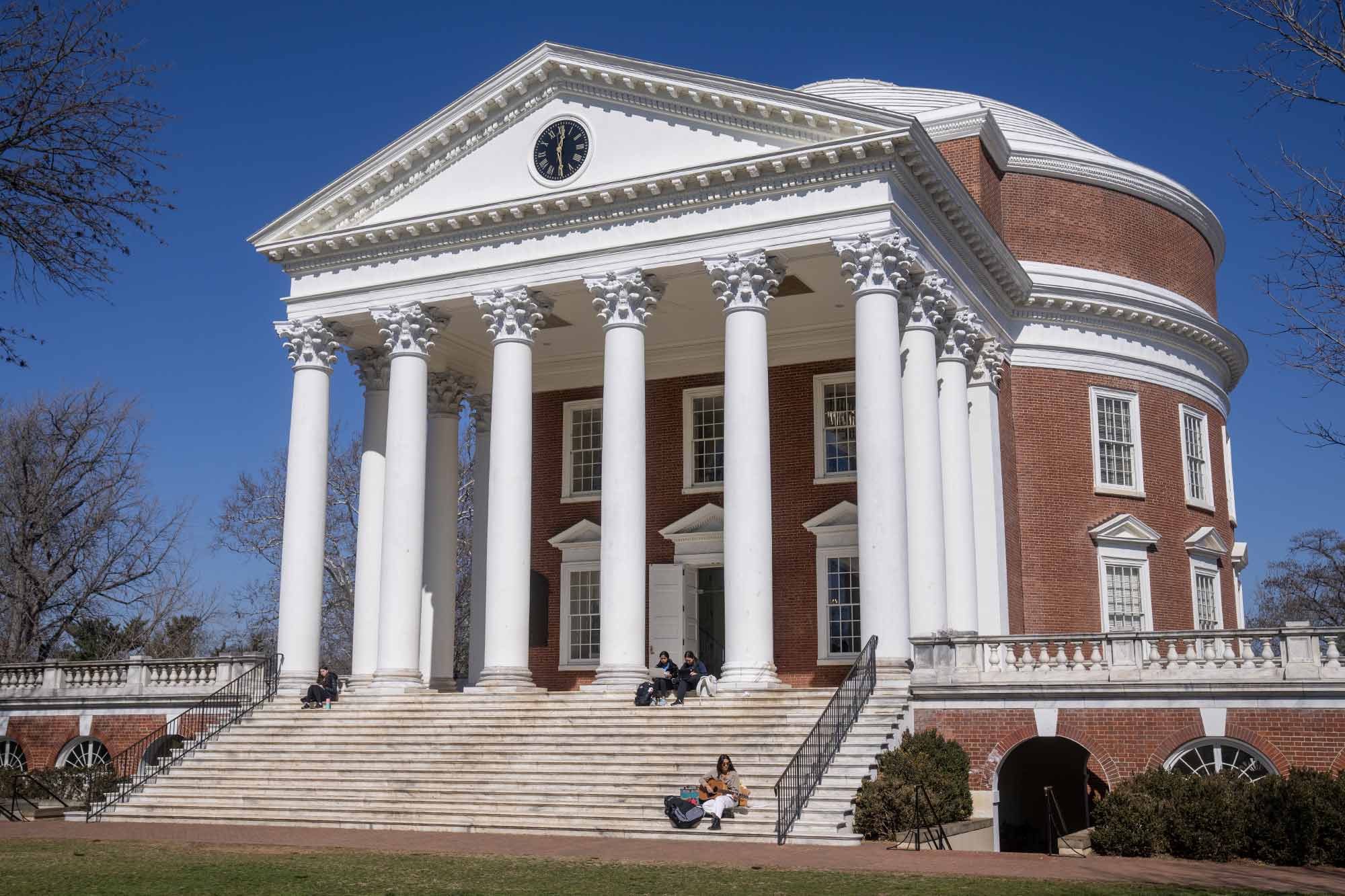
(Photo by Dan Addison, University Communications)
Before we get to the items on the agenda, I wanted to spend just a couple of minutes on the recent referendum which has received a fair bit of attention. This has been a difficult couple of weeks, as Lillian (Rojas, student representative to the Board of Visitors) described earlier. The referendum that was part of this year’s student elections has stirred a lot of passion, activism, and emotion from members of this community on both sides of the issue. Indeed, it’s a sign of the deep emotions generated by the Middle East conflict that a non-binding referendum has received such attention.
By way of background, the referendum process here is completely student-initiated and completely student-run. It’s overseen by the University Board of Elections, which is made up entirely of students. The University administration, including my office, does not take positions on student referenda or elections while they’re occurring, regardless of whether we’re in favor or disagree with the referenda.
This is, in part, because of our dedication to free speech and to the idea that in educational institutions, students should learn to advocate for things they care about. We also withhold comment because of our respect for student self-governance, which, as Lillian described in her remarks, matters the most when we disagree with students. A commitment to student self-governance is a little bit like a commitment to free speech – it only matters when it’s tested, and when students do or say something with which we might disagree.
This commitment to self-governance extends to the process of facilitating elections and referenda, which is under the purview of the student-run University Board of Elections. We made sure the complaints about the process were known to the UBE. And they considered those complaints and posted a statement on their website that responds to some of the process concerns raised by this year’s election season.
Now in the past, I’ve remained silent during the referendum process, but I have offered my own views about particular referenda afterwards. I did this with a referendum a couple of years ago, which was to change the honor system from a single sanction of expulsion to a single sanction of suspension. I didn’t think that was a good idea. And I said afterwards that if I had been a student, I would have voted against it. And I explained why. I was pleased to see last year that the referendum on the honor system addressed what I saw as the shortcomings of the earlier election.
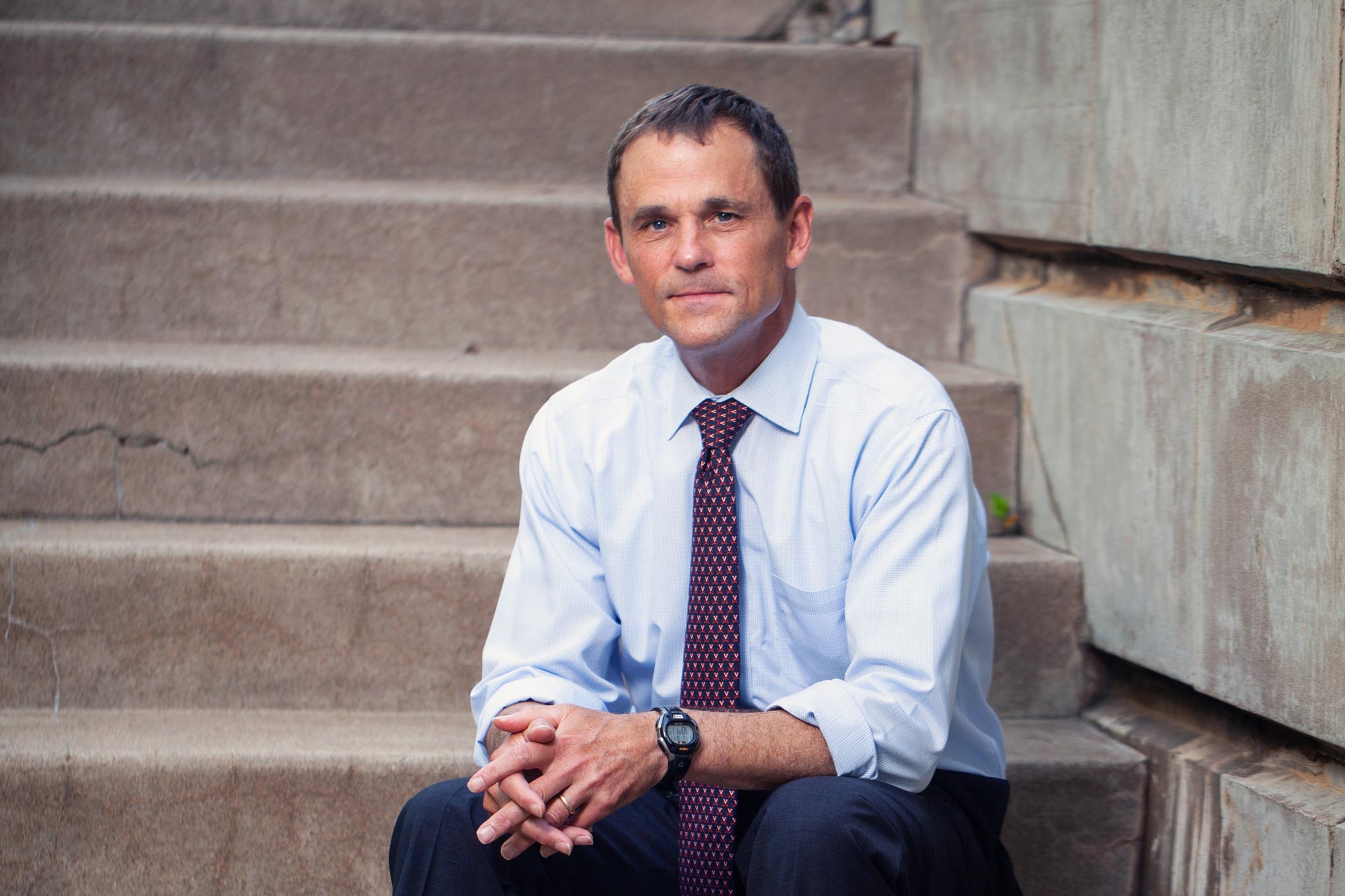
University of Virginia President Jim Ryan (Photo by KK Ottesen)
I say this by way of preface to let you know that if I were a student, I wouldn’t have voted in favor of this referendum. There was a lot in there, but the part I want to talk about is divestment. I recognize that my own views are immaterial. As we covered this morning, decisions about how to invest the University endowment are made by the University of Virginia Investment Management Company, otherwise known as UVIMCO, which is a separate entity that is ultimately responsible to the Board of Visitors. And as we heard, UVIMCO has a Committee on Investor Responsibility that considers concerns raised by members of the community about their investment strategy.
All that said, and for whatever it might be worth, my own views are fairly simple. I appreciate the immense pain and suffering caused by this war, to all of those who were and are its victims. I appreciate the pain and suffering this war is causing on our Grounds among students with friends or family in Israel or Gaza. But I do not favor divestment generally as a strategy. And the topic of Israel and the ongoing war is one that is hotly debated. I don’t believe a university should use its investment strategy to weigh in on one side of such a complex and deeply contested set of issues.
There’s no doubt that, in part because of this referendum, some members of our community, including those who are Israeli or Jewish, are worried about how welcome they are at UVA. We’ve also heard from many Palestinian and Muslim community members who have experienced very similar emotions and have asked the same questions over the past few months. What is most important to me is that our students know that we care about all of them, and that we see all of them, not just a select few; that we acknowledge the pain of those who have lost loved ones in Israel or in Gaza; and that we grieve for all innocent lives lost, whether Israeli or Palestinian, Jewish or Muslim; that we are not selective in our empathy nor selective in our outrage at injustice; and that we view all innocent lives lost equally.
We also have to do everything we can to foster an environment where students can express themselves and engage in debate on difficult issues knowing that the university is their home, and that they belong. Our aim, as it is often said – sometimes as a critique – is not to tell our students what to think, but to help inform them so they can come to their own views. We are all here collectively to help our students learn, develop and grow. Sometimes that means, as is the case with referenda, staying out of the way to allow our students to work things out for themselves, as messy and painful as that process can be. It’s often where real lessons can be learned – lessons that our students will hopefully carry with them when they leave.
Lastly, as I said in the video that I shared with the community at the start of this semester, when we are at our best, we are not just a community – we are a lot more like family. This does not mean we will always agree; far from it. But it means that at a very basic level, we’re committed to each other and to seeing the best in one another. In my view, that is some of the most important work we can do as a community.
Media Contacts
Associate Vice President for Communications and Chief Communications Officer University Communications
btc6r@virginia.edu 703-477-8222





